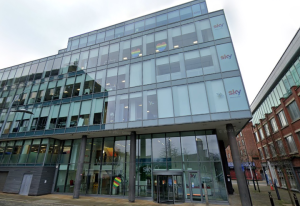HMRC getting tougher as winding up petitions soar

The government’s own figures released yesterday (18 July 2023) reveal that there were 260 compulsory liquidations in June 2023, 77% higher than in June 2022.
The figures seem to indicate a toughening of policy towards tax defaulters by HMRC, with winding up petitions issued by the taxman increasing following historical lows seen during the coronavirus pandemic.
But rising energy costs and interest rates are also taking their toll on businesses with some commentators citing the end for “zombie companies” propped up by cheaper borrowing.
Nicholas Hyett, Investment Manager at Wealth Club said: “Insolvencies and the accompanying job losses are never pleasant, but it’s just possible those companies falling to the economic pressure are companies the economy can afford to lose. There’s been much debate about zombie companies in recent years – businesses that are barely profitable, or heavily indebted that have managed to muddle through in a world where cheap bank loans were easily available. Those companies are likely to be early casualties of rising interest rates.”
However, Hyett also said an opportunity arose if their demise frees up staff and properties for use by more profitable companies, he said the long run effect could be a boost to UK productivity.
“Unfortunately, only time will tell whether the current spike in insolvencies is a zombie apocalypse or an apocalypse of the regular, more painful kind.”
Predictably, restructuring and recovery experts urged businesses to seek advice before financial pressures become fatal.
Fran Henshaw, a regional chair of the insolvency and restructuring trade body R3, said the monthly fall in corporate insolvencies was driven by a reduction in Creditors’ Voluntary Liquidations, a process where directors close their business voluntarily. However she added: “The numbers for this process are sizeable as directors are still choosing to close their businesses while the choice is theirs to make.”
Henshaw, also Head of Corporate Recovery and Insolvency at Beever and Struthers, added: “Despite the monthly fall in corporate insolvencies, levels are higher than they were this time last year – and well above what they were this time two to four years ago, as the hangover from the pandemic combines with a challenging trading climate caused by a number of economic issues.
“Firms are trading in a time of cautious consumer spending and rising costs, which are hitting margins and profits hard. Directors expect costs and wages to rise further as the year goes on, and if these don’t translate into increased income from goods and services, it could be the final blow for those businesses that are just managing to survive.
“Rising interest rates are another potential challenge, as that will make the cost of borrowing more expensive and may price some firms out of the survival funding they’ll need.
“Given the economic and business climate, we urge directors to be alert to the signs of financial distress, and seek advice if they find themselves facing issues like rising stock levels, problems with cashflow or difficulties paying staff, taxes or suppliers.”

Chris Tate, restructuring partner, Azets
Chris Tate, a restructuring partner at accountancy firm Azets, says Britain’s inflationary environment is causing a ‘perfect storm to brew’– with the soaring cost of borrowing making matters worse and that hospitality is a particularly vulnerable sector.
He said: “The cost of living crisis isn’t going to get any better soon. High inflation appears to be baked in, with the cost of supplies unlikely to be lowering in the near future and the continued rise of interest rates compounding cash-flow pressures as debt repayments increase substantially compared to previous years.
“For consumers, the impact is bound to hit hard on discretionary spending. There is also the concern that the highest tax burden in two generations is leaving even less for people to spend after all the bills have been met. These economic conditions, unwelcome and unsettling, are causing a perfect storm to brew for businesses. The hospitality sector, including bars, pubs, restaurants, hotels, theme parks and tourism, is particularly vulnerable.”
According to government figures, there are 143,000 businesses in the hospitality sector, employing 1.8 million people. Many will now find themselves struggling to make any sort of profit following the tough pandemic years.
He added: “To drill down further, we are already seeing this in the fish and chip industry – the cost of packaging, fish, potatoes, labour, higher VAT bills and energy, with less spending money from hard-pressed customers, are hurting.
“We’ve already had a related enquiry which shows this particular business model is, frankly, broken. Unless the government take action akin to the temporary VAT reduction during the pandemic, soon, many more similar businesses will unfortunately hit the wall.”








